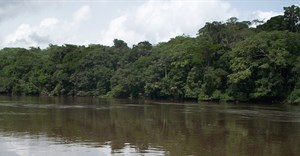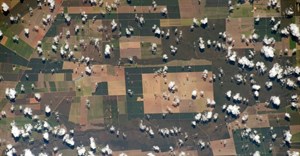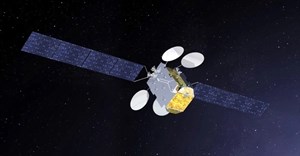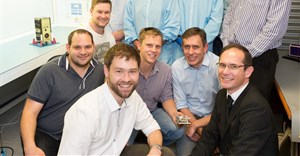Trending



 Sabre EMEA 2024 Awards: Razor PR, Retroviral top SA agenciesDanette Breitenbach
Sabre EMEA 2024 Awards: Razor PR, Retroviral top SA agenciesDanette Breitenbach

Elections 2024
Jobs
- General Manager Vereeniging
- Front Desk Coordinator/Receptionist Vereeniging
- Tourism Update - Sales Executive (Junior to intermediate) Johannesburg
Satellite technology gives SA tourism an opportunity to level the digital divide
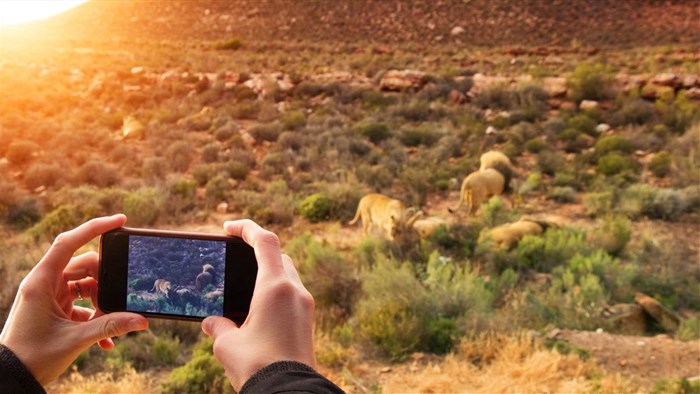
Even before lockdown, affordable and reliable internet was cited as a principal obstacle to business by 60% of South African SMEs. This was even higher in the tourism and leisure sector.
South Africa’s far flung tourist establishments have long been accustomed to the challenges of distance and poor connectivity, dealing with the loneliness, insecurity and lack of social interaction as best they can. In the country’s most remote rural areas without access to electricity the sense of social isolation and lack of meaningful human interaction is acute.
Satellite internet presents South Africa’s tourism sector a critical social inclusion lifeline
Small businesses, especially remote tourism entrepreneurs, need reliable internet to service their clients more effectively, find information, develop skills, and reach new markets. Accessing cloud-based services including, "accounting and other business tools, management, e-learning and productivity-improvement apps, while also identifying new business opportunities and increasing market access are critical for this segment," says Wattrus.
Most importantly, however, "satellite internet presents South Africa’s tourism sector a critical social inclusion lifeline," says Wattrus.
"Access to the internet, for example, allows remote tourist operators to stay in touch with relatives and neighbours. This is especially important in poorly policed rural areas where satellite internet keeps operators in touch with their immediate community 24/7 even when the power is down. Moreover, by enabling telephone, television, Facebook, Instagram, Netflix and Skype along with the host of other social media elements that, today, define human interaction, satellite internet offers South Africa’s most isolated operators a sense of identity and inclusion while, “providing their guests the same digital ability that they enjoy at home," explains Wattrus.
Sustaining marketing communication
In lockdown, "the importance of being able to sustain and deepen conversations with potential and previous clients so that tourism and leisure offerings remain front of mind is central to survival,” says Wattrus. This priority is echoed in the World Travel and Tourism Council’s recommendation encouraging governments to support their hard-hit tourism sectors through the Covid-19 crisis by helping operators invest in, “digital transformation to enhance market intelligence," says Wattrus.
By guaranteeing that tourist businesses stay operational and connected to customers 24/7, "satellite internet presents remote tourist establishments an opportunity to sustain essential marketing and business conversations while repositioning businesses for a quick return to operation as conditions permit," says Wattrus.
Internet connectivity provides South Africa’s tourism sector an opportunity, for example, to feature food and other offerings, tell interesting visual stories, arrange virtual experiences, talk to clients, find new markets, or manage operations remotely. "One only has to look at how successfully many game farms continued to position their offering through lockdown," says Wattrus. By posting game sightings, live drives and other visual content online and keeping their offerings visible, forward bookings – and vital revenue – continued even through the most difficult times.
Inexpensive development solutions
From an affordability perspective, since the communications satellites are already in space, South African tourist establishments don’t have to pay for either a satellite launch or the development and maintenance of expensive fixed line networks.
"All you need is a dish, a router and a subscription that best suits your needs,” explains Wattrus. Today’s Ka band technology is also a great improvement on previous satellite offerings, "providing greater speed and much reduced interference from weather," adds Wattrus.
Satellite technology is completely independent of terrestrial infrastructure and does not rely on a fixed electricity supply. Satellite also circumvents mountain ranges, buildings and other physical barriers that block coverage. In short, it enables affordable and reliable internet to remote establishments without access to fibre, unable to finance expensive connectivity packages, subject to power challenges, or victims of regular cable theft or fixed-line deterioration.
Most importantly, however, the arrival of accessible satellite technology offers South Africa’s tourism industry an opportunity to level the digital divide, "regardless of where operators find themselves, how isolated they were in lockdown or how their revenues have been impacted," concludes Wattrus.





